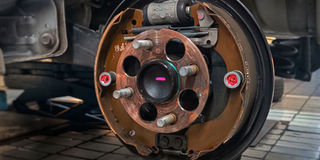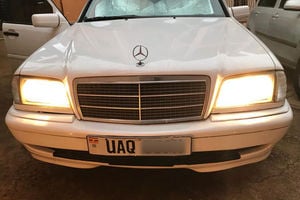
What is the difference between drum brakes and disk brakes?
Victoria
Hello Victoria, the difference between drum and disc brakes is mainly in their design, performance and practical benefits. Brakes are devices that slow down or stop a moving mechanism or vehicle. This is done by absorbing the energy of momentum or moving forces. Brakes use friction to stop or slow the moving mechanism or vehicle you drive.
Vehicles mostly use disc brakes and drum brakes, primarily the two different braking systems. Drum brakes are fitted to the rear wheels of vehicles where they are used. Disc brakes are usually fitted on the front wheels, although some modern cars have them on the rear wheels too for performance reasons.
Drum brakes are the earliest form of brakes used as early as 1902 and remained in use until the 1950s when car manufacturers introduced disc brakes to work with the drum brakes. Drum brakes, which are commonly used on rear wheels, consist of hydraulic wheel cylinders, brake shoes, springs and the brake drum. When you apply the brake pedal, two brake shoes are pushed by the cylinders against the inner lining of the brake drum. The drum brakes are common with older vehicles and rear wheels of commercial vehicles such as pickup trucks.
Disc brakes use callipers to engage or squeeze a pair of pads onto a disc rotor to slow or stop the vehicle. They are more popular with most modern cars today.
The main differences between the drum brakes and disc brakes are in their performance, amount of heat dissipated and ease of maintenance. Disc brakes perform better than drum brakes, especially when it is wet. On the other hand, drum brakes cannot quickly dissipate heat or dry up when you drive through water. This reduces their performance and increases brake wear.
Drum brakes are more complicated and tedious to repair or replace, while disc brakes are easier and quicker to replace.
ARE ALL PAJEROS PRONE TO OVERHEATING?
Hello Paul, I would like to procure a Mitsubishi Pajero V93W, 3.0L, Petrol. It is, however, alleged that all Mitsubishi engines overheat despite the model and age. From your experience, how true is this?
Vincent
Hello Vincent, treat as idle talk any allegation that Mitsubishi Pajero engines across all models and ages have an engine overheating problem. Engine overheating is a problem that can happen to any vehicle engine, regardless of the model or age.
There are issues that cause overheating such as poor cooling system maintenance (coolant service to prevent damage due to corrosion and heat buildup) as well as failure to repair broken down cooling system components such as electric fans, leaking radiator or hoses, water pump, thermostat and fan switch.
If one fails to maintain any of these components when they buy a 10 or 15-year-old used Pajero, they should not blame Pajero as a product.
Send an email them to: [email protected]




